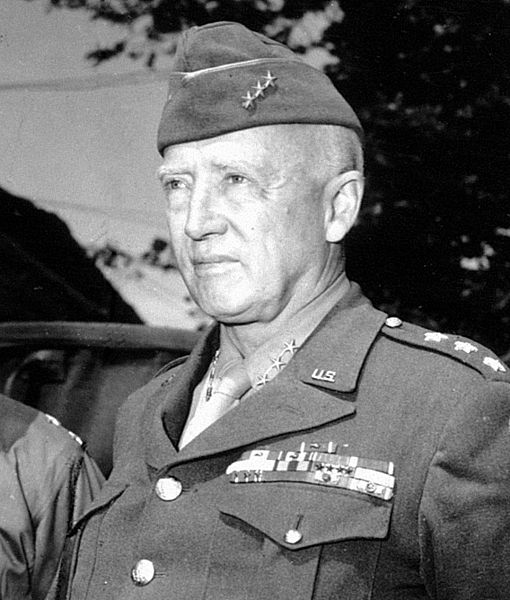The Strategies to Arguing Tactfully
September 29, 2021
How to make a point without making enemies.
Rome wasn’t built in a day, and it also wasn’t built by a single guy with a shovel. Whether you’re trying to forge an empire or accomplish a mission, all great human endeavors have one thing in common: they require collaboration. Unfortunately, with teamwork comes a possibility of disagreements and opposing viewpoints. When problems arise, you must be prepared to evaluate a solution with your team while maintaining the group’s morale, integrity, and esprit de corps.
This OA leadership guide is all about learning how to argue your ideas tactfully. The less friction you create while discussing the team’s issues, the more willing your teammates will be to help you overcome obstacles. Winning a debate means nothing if your group resents you for it.
Strategy 1: Choose Your Battles
Before you decide to engage in an argument, you must determine whether or not it’s necessary to do so. Egos can often cloud judgment and cause people to start unnecessary problems. The only time you should be engaging in an argument, even when you’re the team leader, is if you believe the team’s decision will cause harm to the mission. If the purpose of a potential argument would be inconsequential to the group’s goal, do not engage. People tend to be poor at hiding the intent behind their actions – if your teammates sense that you are starting an argument for the sake of arguing, or that you are trying to “establish your dominance,” they will immediately lose respect for your leadership. Engage strategically and avoid unnecessary conflict.
Strategy 2: Don’t Get Personal
One of the worst mistakes you can make during a debate is performing an ad hominem attack. This occurs when you attack an individual instead of an argument. Take this exchange for example:
Person 1: “We should establish a position at the top of the hill.”
Person 2: “I believe we should stay in the valley instead.”
Person 1: “You should worry about growing a brain stem before you worry about talking.”
Although this is an extreme example, it’s clear that Person 1 is more interested in “winning” the argument than finding a strategic solution. Even if they are correct, their behavior will erode any respect their teammates may have for them. When you’re debating possible courses of action with your group, there is no victory in being correct – the sole measure of an argument’s success is how effectively you find a solution.
Strategy 3: Be Precise
Precision isn’t just a necessity for creating achievable goals, it’s also a crucial aspect of having your ideas taken seriously during a debate. While some hyperbole can help you illustrate a point, constant exaggeration makes your ideas seem unfounded and misguided. When you’re arguing, try to make your key points as concise and specific as possible. This has several benefits:
Firstly, simple information is easier to remember and process than protracted statements. Concise arguments are also more difficult to misrepresent if your adversary wants to twist your words. Finally, you’ll be better able to segment and keep track of the points you’ve made, which helps you avoid making redundant arguments or accidentally countering your own ideas. Simplicity is the core of debate – use hyperbole conservatively.
Strategy 4: Stay Humble, You Might Be Wrong
If you think you’re wrong, you (hopefully) aren’t arguing in the first place. But just because you believe that your ideas are right in your mind doesn’t mean that they are correct in reality. In fact, unless you’re arguing the laws of physics or basic math, you will seldom find yourself in a debate where your point of view is irrefutable. With that in mind, here are a few common logical fallacies that you should be careful to avoid during your debates.
Straw Man Fallacy
The straw man fallacy is similar to the ad hominem attack in that it changes targets and ignores the primary argument. A straw man fallacy occurs when instead of tackling the debate subject, you challenge an exaggerated and indefensible facet of the problem that your opponent wasn’t arguing for in the first place.
Person 1: “We should put solar panels on our house.”
Person 2: “But if everyone puts solar panels on their house, the oil industry will fall apart and people will lose jobs!”
Causal Fallacy
The causal fallacy operates on the belief that correlation equals causation. Oftentimes, it’s easy to forget that just because two events seem related, that doesn’t necessarily mean that one causes the other. Although the following example is extreme, causal fallacies still commonly occur in science and medicine (for example, they are responsible for the myth that childhood vaccinations cause autism):
“I eat dinner before sunset every single day. Therefore, eating dinner causes the sun to set.”
Appeal to Authority
An appeal to authority fallacy is when you overuse an authority figure as evidence for your argument. While experts, doctors, researchers, etc., can often provide invaluable evidence and shed light on an idea, overstating or overvaluing their opinions is a common debate fallacy. Just because someone is in a position of power or has experience doing something, that doesn’t mean everything they say is infallible.
“My uncle owns a gym, and he says that ALL bodybuilders use steroids. So that must be true!”
Moving the Goalposts
Finally, moving the goalposts is more of a dirty debate tactic than a fallacy. Simply put, this occurs when you dismiss valid evidence for your adversary’s argument and demand more or different types of proof. When the other person takes a metaphorical shot on target, you move the goalposts instead of defending.
Moving the goalposts often occurs when a person is backed into a corner and knows that their argument is wrong but is determined to keep fighting. If you can feel your ego aching during a debate, it might be time to throw in the towel.
Person 1: “You don’t get to tell me what to do because you don’t have experience in this line of business.”
Person 2: “Actually, I’ve worked in this industry for five years.”
Person 1: “Well you need six years of experience to tell me what to do!”
Learning how to argue your points productively takes time. In the past, “conversationalism” was considered a skill that people would train the same way they would practice playing musical instruments. In other words, if you want to get good at applying the techniques in this OA guide, you must keep them in mind and practice them during your daily conversations!
If you’re looking for more ways to develop your leadership skills, become an OA Aspiring Operator today. You will unlock instant access to hundreds of exclusive special forces podcasts, a private weekly accountability group, and a community of over 900 motivated, disciplined future operators who will keep you accountable for your progress. Visit our membership packages page
to get started today!








